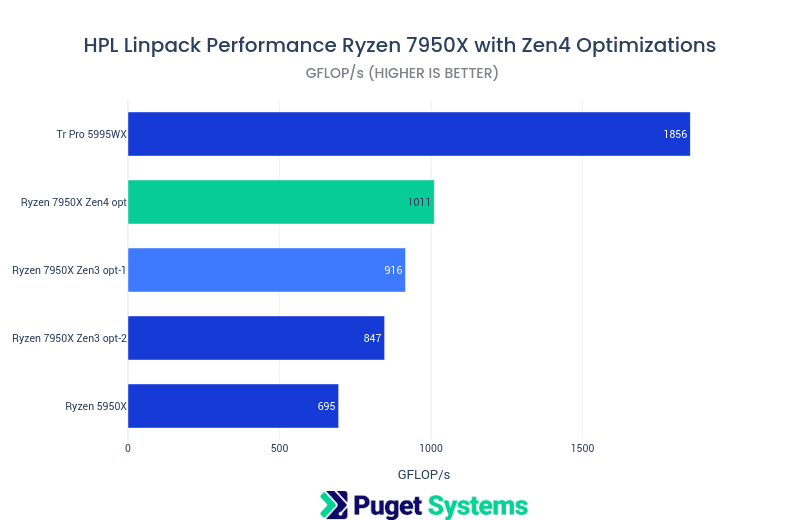This post is a first-look at performance of the Ryzen7 7950x CPU using the latest AMD compiler release with support for Zen4 arch including AVX512 vector instructions. Performance is tested using the HPC standard benchmarks, HPL (High Performance Linpack), HPCG (High Performance Conjugate Gradient) and the newer HPC Top500 benchmark, HPL-MxP (formerly HPL-AI).





